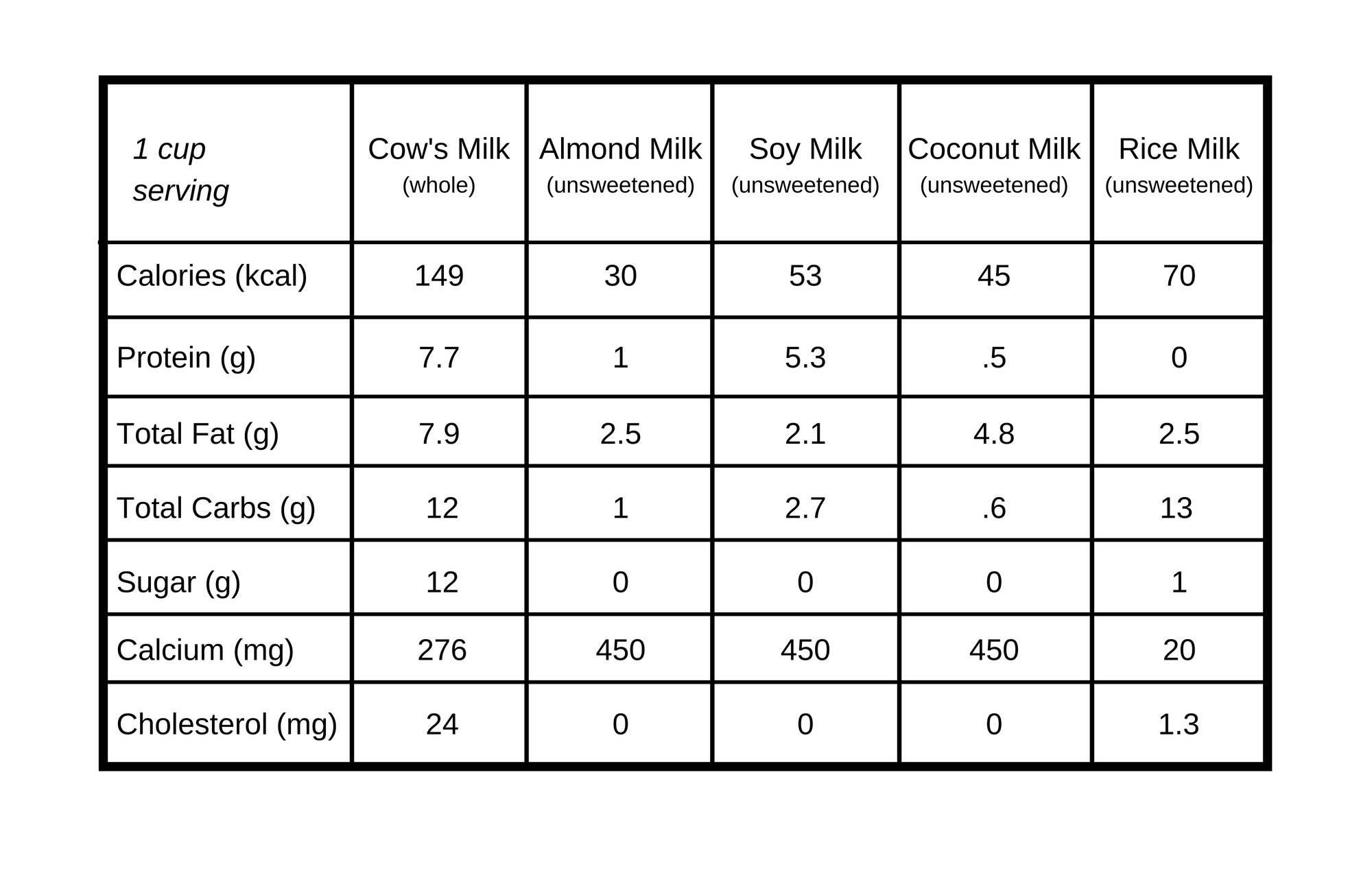Millions drink cow’s milk for its health properties, but recent demands have seen a huge growth in plant-based milk options. Is drinking milk alternatives the way to go?
Cow’s milk has been consumed for hundreds of years as an important source of protein for children and adults alike, but the world has seen a growing number of plant-based milks stocked on their grocery shelves in recent years. Marketed as a healthy alternative to dairy milk, it is natural to wonder: are plant-based alternatives really healthier than cow’s milk? And is there a reason to replace cow’s milk with plant-based milk?
Cow’s milk benefits and the rise of plant-based milks
Dairy milk provides all the major nutrients such as fat, carbohydrates, and protein. Milk is also rich in an array of vitamins such as vitamin A, vitamin E, riboflavin, folate, vitamin B6, and vitamin B12. When fortified, milk is also a key source of vitamin D. Lactose, a natural sugar found in milk, helps to enhance absorption of calcium and other micronutrients like magnesium, phosphorus, and vitamin D. Despite these benefits, there has been a rise in demand for plant-based alternatives around the world, and it is estimated that 49% of Americans consume at least one type of non-dairy milk today.
Milk alternatives: how do they compare?
Non-dairy milk beverages are made from a variety of plant foods, most commonly rice, soy, almonds, and coconuts. These drinks visually resemble cow’s milk and are commonly advertised as its healthier counterpart. In reality, plant-based milks vary widely nutritionally based on sourcing, processing methods, and fortification. The table below shows the nutritional breakdown of the most highly consumed milk beverages today.

While plant-based milks are lower in calories, sugar, total fat, and cholesterol than cow’s milk, they are also lower in protein, with the exception of soy. Because of this, proponents of dairy milk argue that alternative milks should not act as a substitute because they lack the nutritional balance seen in cow’s milk. Many plant milks are fortified with calcium and essential vitamins like vitamin B12 and vitamin D, but there are concerns that added calcium sources are not absorbed and used by the body as well as the calcium found in cow’s milk.
Is organic dairy milk healthier than conventional?
Organic farming uses no added hormones, pesticides, and antibiotics, and as such, consumers buy organic milk because they believe it to be more nutritious and safer to ingest. Studies comparing organic and conventional cow’s milk showed that while there was no sizable difference in total fat and protein, organic milk did contain a higher concentration of important anti-inflammatory dietary fats that help lower heart disease. Organic milk also showed greater amounts of vitamin E and iron. When it comes to pesticides, antibiotics, and hormones, a 2019 study found that both pesticide and antibiotic residue were not detected in the organic samples but were detected in most conventional samples, where the antibiotic level exceeded the FDA limit. The hormone levels found in conventional milk were also 23 times higher than that of organic milk.

What you should know about milk
Þ Plant-based milks vary considerably when it comes to nutritional quality. Some are similar nutritionally to cow's milk, and others fall way short. If you are going to switch to a plant-based milk, find one that contains a good amount of protein, ideally 8 or 9 g per serving, calcium, iron, and vitamin D. Also, beware of added sugars and additives that manufacturers often add. Look for milk that is low in added sugar.
Þ Each milk alternative has its own benefits and risks. Soy milk may be the clear winner when it comes to nutritional quality due to its high protein count, but some dislike its “beany” flavor. Almond milk is often preferred for its taste, but lacks the nutrient density, calories, and richness of cow’s milk. Rice milk and coconut milk are ideal for those allergic to soybeans or nuts but offer very little nutritional diversity, particularly with protein.
Þ If drinking cow’s milk, stick with unsweetened and low or no fat . The consumption of sugary, flavored dairy milk products are linked with type 2 diabetes, so reach for unsweetened milk instead. One study followed people’s drinking habits for 7-day stretches over 10 years. Those who consumed at least 1.2 cups of sweetened milk beverages a day were 22% more likely to develop type 2 diabetes, the same likelihood associated with drinking sugary soft drinks, than those who drank sweetened tea or coffee.
Þ Lactose intolerant? Learn how to manage it. If you are lactose intolerant, you are unable to digest lactose, the sugar found in dairy, causing abdominal pain, bloating, and diarrhea. Luckily, it is not always necessary to avoid all dairy foods. Lactose-free milk and ice cream, natural hard aged cheeses like Monterrey Jack or Cheddar, and yogurt with active, live cultures are usually safe for most lactose-sensitive people. Oral enzyme supplements can also be taken while eating or drinking to aid in digestion.





